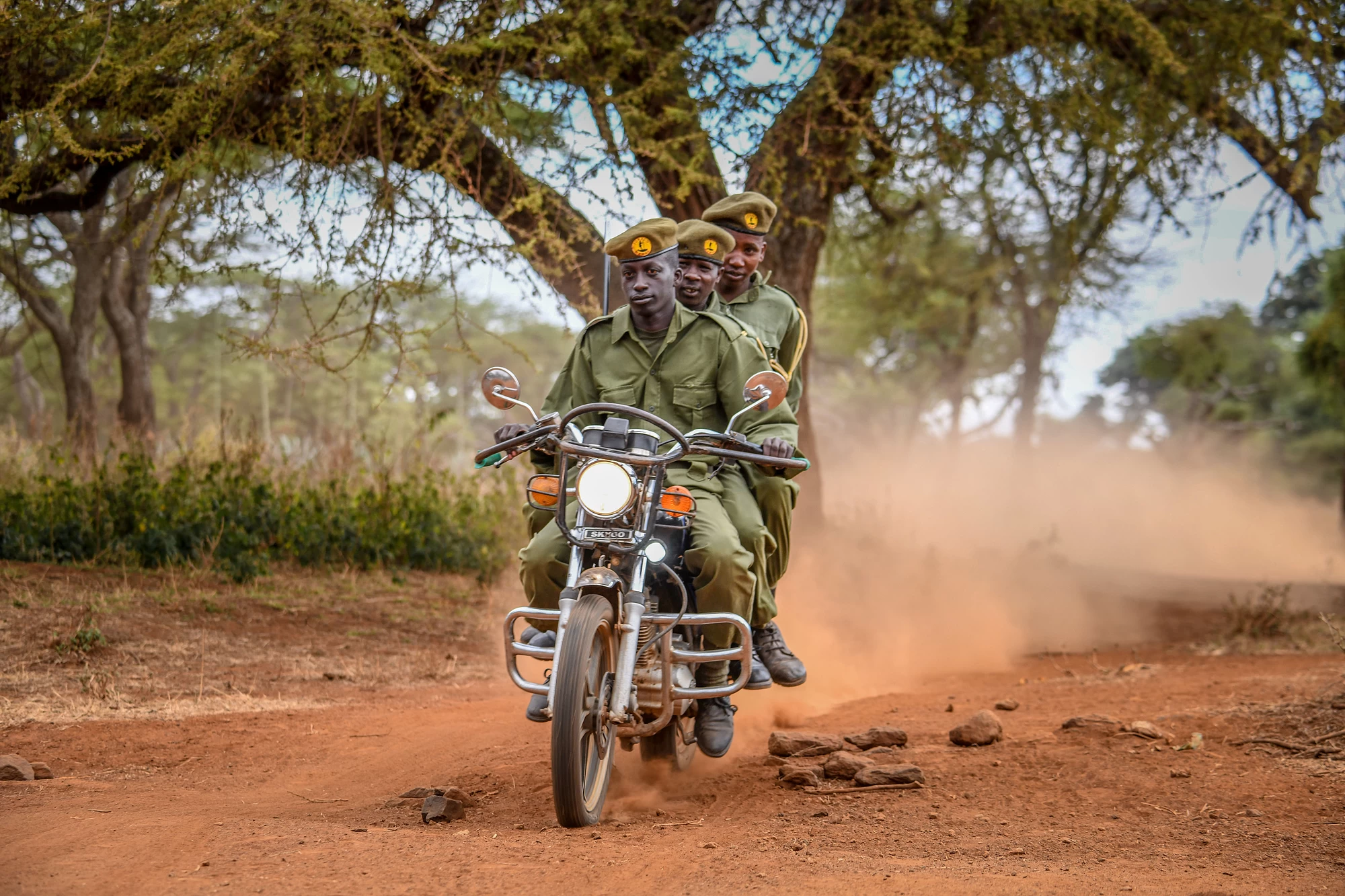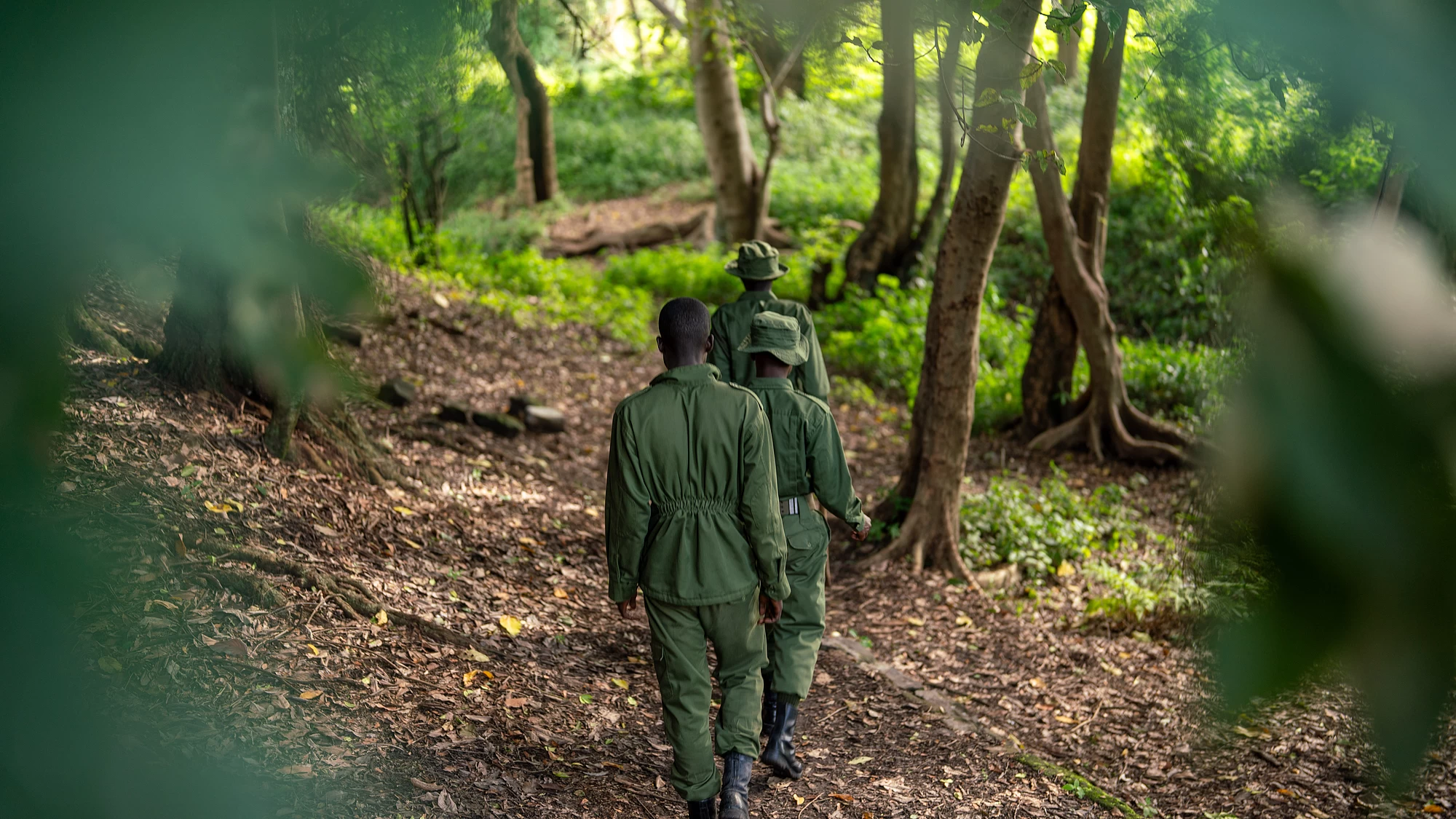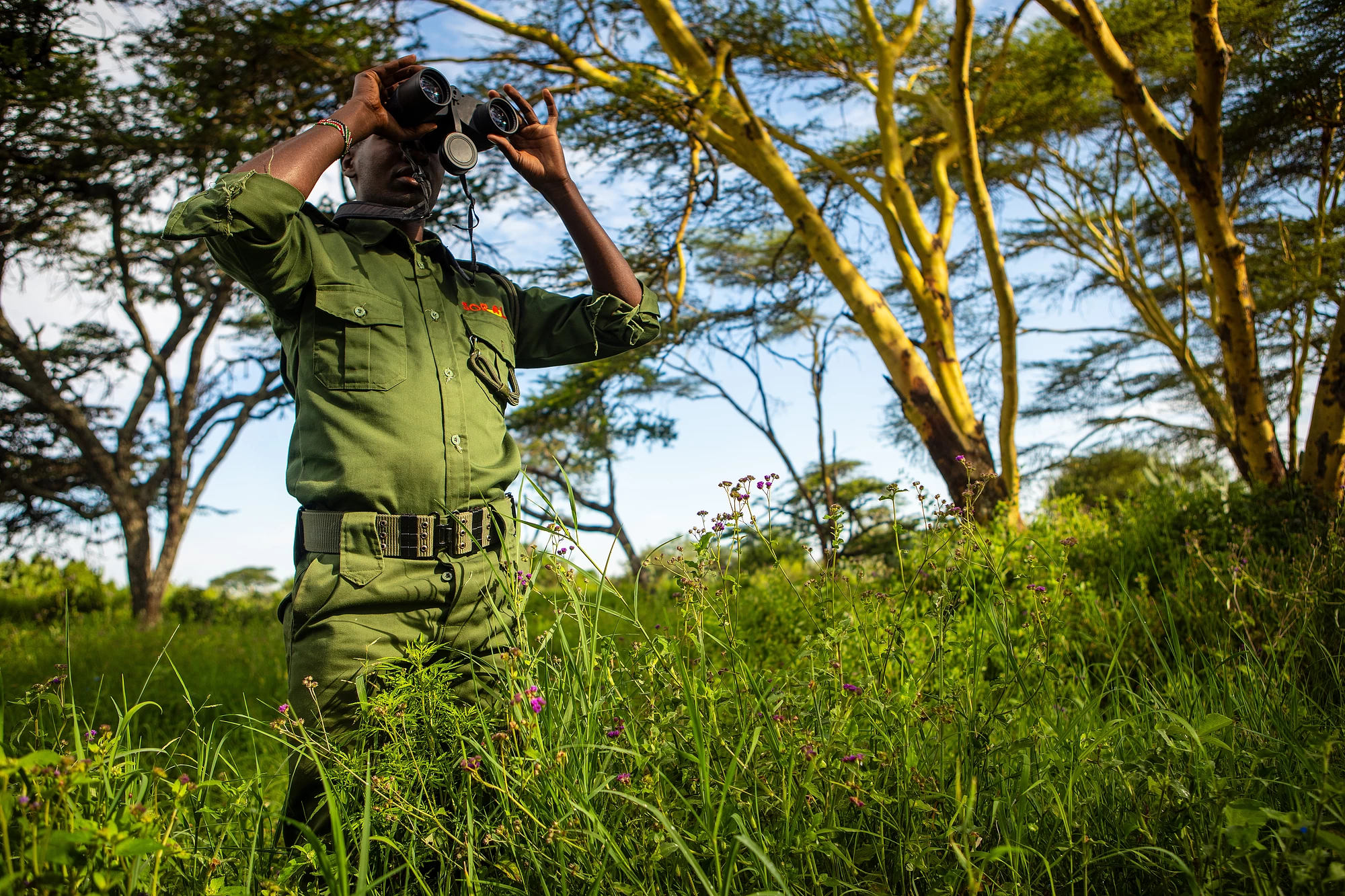The WWF is run at a local level by the following offices...
- WWF Global
- Adria
- Argentina
- Armenia
- AsiaPacific
- Australia
- Austria
- Azerbaijan
- Belgium
- Bhutan
- Bolivia
- Borneo
- Brazil
- Bulgaria
- Cambodia
- Cameroon
- Canada
- Caucasus
- Central African Republic
- Central America
- Central Asia
- Chile
- China
- Colombia
- Croatia
- Democratic Republic of the Congo
- Denmark
- Ecuador
- European Policy Office
- Finland
From time to time, nature gives us a moment that reminds us why we fight to protect it. In the southern reaches of Tanzania, that moment came quietly but powerfully when three African wild dogs (Lycaon pictus), one of Africa’s most endangered carnivores, were spotted just outside Liparamba Game Reserve. It was the first confirmed sighting in over two decades. For many, this was simply an exciting piece of conservation news. But for Paul Protus Ntiwamagwa, a ranger who has dedicated years of his life to this landscape and specifically this WMA, it was deeply personal. “I love my work so much simply because it gives me a chance to protect nature on the ground,” Paul says. “And the best part is that I get to see the impact of my work firsthand. When I saw the wild dogs my heart raced with joy.” Paul is one of the many unsung heroes behind this remarkable return, the unseen stars of conservation. Every day, he and his fellow rangers at Liparamba patrol long distances under the sun, walking through rugged terrain, checking for snares, deterring poachers, and monitoring wildlife populations with limited tools and little recognition. It’s demanding work, physically and emotionally.

On this world Rangers' day, we reflect on rangers who work hard to protect nature. This year we reflect on the theme Ranger powering transformation conservation. Marked globally on July 31st, Rangers Day gives us all a chance to stop and recognize the sacrifices of people like Paul. It’s a moment to appreciate the thousands of rangers around the world who wake up each day and head out not into offices or boardrooms but into the wild, risking their lives to safeguard the ecosystems we all depend on. Rangers are not just uniformed protectors of wildlife; they are biologists, first responders, teachers, and peacekeepers rolled into one. Their presence in areas like Liparamba helps deter illegal activities such as poaching and habitat encroachment, which are rampant threats in conservation landscapes. They are often the first to spot rare species, the first to respond to community conflict, and the last line of defense between vulnerable species and extinction. For Paul, the return of the wild dogs was not by accident. It was the result of painstaking work by rangers and community collaborators who have worked to secure the habitat across Liparamba and surrounding Wildlife Management Areas (WMAs) like Kisungule and Kimbanda. The wild dogs were seen five meters away from a village adjacent to the reserve. While they haven't yet been captured on the camera traps placed across the landscape despite several attempts, their physical sighting has inspired new conservation hope. According to Paul, plans are now underway to involve researchers and institutions to study the species, understand its movement, and recommend strategies to protect it across the transboundary conservation corridors that include Niassa and Chipanje Chetu in Mozambique.

This is a clear call to action: if wild dogs are returning, we must rise to meet them in safe and secure habitats. Their reappearance is not just a thrill for conservationists; it's a test of our collective will to protect what remains. They rely on vast, connected habitats that stretch across political boundaries. Fragmented land, human-wildlife conflict, and poaching have long threatened their survival. Their return reminds us that when we give nature a chance, it responds. But it’s not automatic. It requires effort, cooperation, and support from all corners of society. For Paul the return of wild dogs remains a positive mark and pride for nature,Paul and his team know the challenges well. In Liparamba, land encroachment remains an ongoing threat. Poaching, though reduced, has not been fully eliminated. The lack of advanced equipment often makes patrols difficult. Despite their best efforts, Paul and his team are sometimes forced to work with outdated or insufficient tools. Communication is limited, and the rugged conditions demand high endurance. Yet even in the face of all this, progress is being made. Paul reports that the diversity of wildlife species has increased in recent years, snares have dropped significantly, and there is now zero cultivation taking place inside the reserve. These are powerful signs of success, evidence that the work of rangers is making a tangible difference.
But these victories come with costs. Rangers face real danger not just from wild animals, but from Porchers and greed. A single moment can turn a great moment into a tragedy, according to the International Rangers Federation, in 2025 alone, more than 174 rangers globally lost their lives, including fifteen from Tanzania where 5 where killed by Poachers. Many more were injured or disabled in the line of duty. They work under conditions that most of us would hesitate to face even for a single day. Harsh weather, long hours, physical exhaustion, and the constant risk of confrontation with poachers make this a job that demands extraordinary courage. And for female rangers, the challenges can be even greater. Cultural perceptions, safety risks, and physical expectations make the field particularly demanding. Yet we have seen so may female rangers break barriers, proving that the will to protect nature knows no gender.

At the heart of many of these efforts is WWF Tanzania. WWF works hand in hand with rangers across the country, particularly in key conservation landscapes like Ruvuma and SOKNOT. In Liparamba, WWF supports rangers by providing training, essential field gear, equipment, and strategic guidance. This support ensures that rangers like Paul are not left alone in their struggle. It ensures that they have boots that last, radios that work, and the skills to navigate difficult terrain and complex situations. More than just logistical support, WWF invests in the capacity and morale of rangers reminding them that their work matters and that they are not invisible. Let us come together to celebrate our important icon in conservation.
WWF also plays a critical role in bridging conservation with communities. Rangers like Paul often serve as the connection point between conservation efforts and the people who live near protected areas. These relationships are delicate but essential. Building trust with communities means ensuring they understand the value of biodiversity, the benefits of conservation, and their role in protecting the environment. Education and awareness are just as vital as patrols and enforcement. WWF supports these community engagement programs to ensure that conservation is not something imposed from outside, but something owned and embraced by the people on the ground. Project like People Powering Biodiversity (PPB), which assist villagers to create their own Forest land reserve areas, which in turn help to promote the growth of nature, is one among many projects.

Liparamba’s story is not unique and that’s what makes it so important. Across Tanzania and beyond, rangers are creating small victories every day that build into national and global conservation success. But they can’t do it alone. Conservation needs you. Whether you're a student, a farmer, a business owner, or a policymaker, there is a role for everyone. You can support by reporting illegal activities, respecting protected areas, spreading awareness, and supporting organizations that invest in rangers and local communities. You can advocate for stronger environmental policies and push for more funding for ranger welfare and equipment.
Paul’s words remind us of the heart of this mission. He doesn’t speak in grand slogans or sweeping statements. He simply says, “I love my work because I get to protect nature and see the impact of my work with my own eyes.” It’s a quiet statement, but one filled with pride, purpose, and truth.
As we reflect on World Ranger Day, let’s not only celebrate the work of people like Paul Protus Ntiwamagwa. Let’s commit to supporting them. Let’s honor their sacrifices with action. Because in the end, the protection of our natural world is not just the responsibility of a few, it's a duty we all share.
The wild dogs have returned to Liparamba. That means there’s hope. Now it’s up to all of us to ensure that this hope is not lost. That these rangers are not forgotten. That the next generation will still be able to see wild paws across Tanzanian soil. Together, we will protect what remains, restore what has been damaged, and respect those who dedicate their lives to making it possible. Let us take a moment to recognize the bravery and selflessness of rangers by remembering those who have fallen and supporting those who continue to serve fearlessly on the frontlines of conservation.
